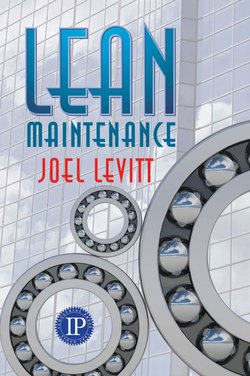Читать книгу Lean Maintenance - Joel Levitt - Страница 12
На сайте Литреса книга снята с продажи.
Оглавление| CHAPTER 5 |
Lean Workers
Benjamin Franklin says: An investment in knowledge pays the best interest.
When you think about lean workers and lean workforces, think about the difference between a platoon of army or even marine personnel, and an equal number of Special Forces personnel. Special Forces have the ability to focus high levels of firepower for short to moderate periods of time, on an objective. They can move quickly because they are designed to be maximally mobile. The Special Forces have deep ability to be flexible and adapt to the situation. Finally, they move without disrupting the environment (stealthy).
The focus, speed, stealth, and flexibility bring about the objective. The lean maintenance worker is like that Special Forces soldier, flexible, with the ability to focus adequate firepower on any maintenance problem.
It is very simple to define an ideal maintenance worker from a Lean perspective. The ideal workers are those who have the skills to handle whatever maintenance tasks are thrown at them. Taking that concept to its extreme, the most efficient set-up is where all roles are in one person. That arrangement gives maximum flexibility. When we speak about all roles, we mean all: maintenance, production, set-up, QC, and so on.
Did you ever notice that, early in the history of almost every company, there is a stage where everyone does everything? Companies in that stage are most Lean because there is very little surplus anything. Everyone moves toward the problem. Problems get handled (or the company goes under!). With too much fat, the company runs out of money.
Yet specialization has many advantages, both in the factory and even in society as a whole. When you specialize you become an expert at something, and you can work more efficiently, Society then has surpluses over having one person do everything. Surplus comes from each person focusing on one thing and gaining the mastery and efficiency that cannot be reached by a generalist.
In our world, if you feel sick, you might see a generalist (internist) who has a wide but shallow knowledge base. If you need a coronary bypass you had better go to a sub-specialist, and not even a general surgeon. The same thing applies to maintenance. I would hope our welders are pretty well cross-trained with all kinds of welding. Code welding in a Nuclear power plant is a specialty, and if we have that kind of work we want a specialist to do it.
Perhaps there is a middle ground. Lean workers are workers whose skills are used well. It would be fat to have workers with skills that are unused by custom, contract, or ignorance. For example if we had that code welder working in his or her specialty once a year that would be fat. On the other hand, when an operator does TPM maintenance, the company moves toward Lean. Certainly, when an operator jumps in and lends a hand to the maintenance worker during a repair, it is Lean. Even when a maintenance worker jumps on the line to keep it running during a break it is Lean.
Some things to look for to Lean up a company’s work force
